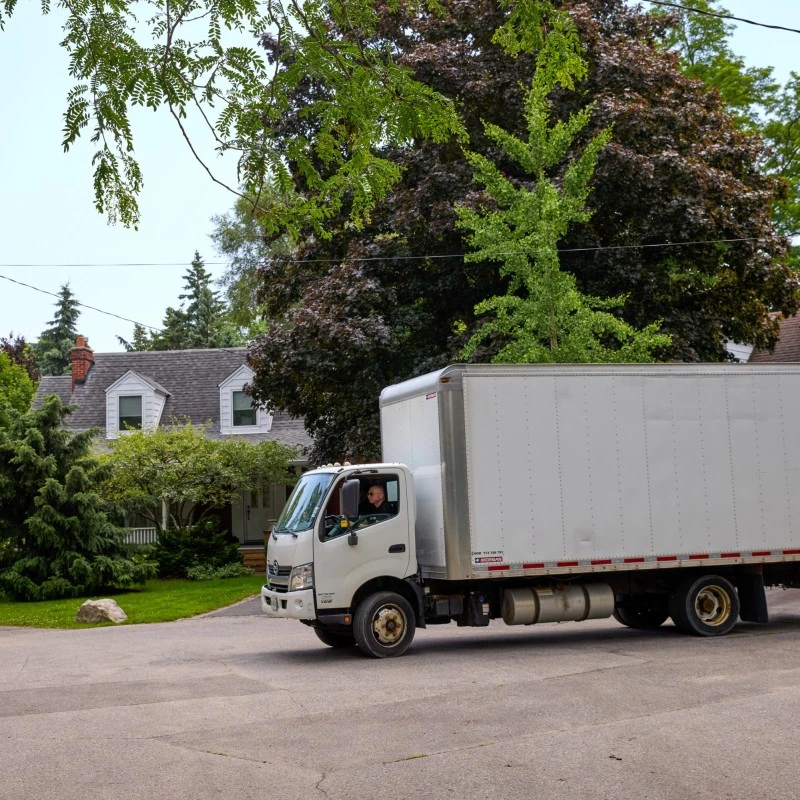Understanding Canadian Politics: A Simplified Guide for New Residents


If you are moving to or considering a move to Canada, having knowledge of the nation’s political system can keep you informed and prepared for potential voting opportunities.
Canada's political framework is based on that of the UK, functioning as a constitutional monarchy with the Queen or King acknowledged as the Head of State and the Prime Minister as the Head of Government.
Canada’s constitution mandates that elections are to occur no less than once every five years. In 2007 Parliament enacted Bill C-16, setting specific election days every four years to fall on the third Monday of October.
Keep reading to learn the basics of how elections, politics and the government work in Canada.
First Past the Post (FPTP) electoral system
Canada uses an electoral system called First Past the Post (FPTP), also known as a “single member plurality” system.
In every electoral district, the candidate with the most votes wins a seat in the House of Commons and represents that district as its member of Parliament (MP). An absolute majority (more than 50 percent of the votes in their district) isn’t required for a candidate to be elected.
A candidate can run in only one riding, either independently or under a registered political party. Each party can endorse only one candidate per district.
Advantages of the FPTP system
- There is usually a clear choice between two main parties—however, smaller parties often struggle to get enough support.
- This system often results in governments run by a single party instead of a bunch of parties working together. Many people are in support of this, as it makes decision-making easier,
- Strong opposition in government—usually the opposing party gets enough seats to keep tabs on the party in power and offer a different point of view.
- This system encourages parties to include representatives from diverse ethnic and regional groups, creating “broad-bases parties”.
- This system makes it harder for extremist parties to get seats unless a significant number of voters in one region support the party.
- Local representation matters. Since each area elects its own representative, individual communities feel like they have a voice representing them.
- Voting for an individual person instead of a whole party allows voters to judge each candidate on their own merits.
- Independent candidates are given a chance.
- The FPTP system is simple and easy to understand.
How many seats are in Canadian Parliament?
There are 338 members in the House of Commons in Canada. Each member represents a specific area called a riding. The number of seats per province is based on population, according to a national census that happens every 10 years.
The “Senate floor” rule states that each province must have at least as many elected members of parliament as it has senators.
The “grandfather clause” ensures that each province maintains the same number of seats in the House of Commons as it did in 1985, regardless of fluctuations in population.
Canada held a federal election on October 21, 2024, resulting in a shift in the composition of the House of Commons. The Liberal Party, led by Prime Minister Justin Trudeau, secured a minority government, necessitating collaborations with other parties to pass legislation.
How does the voting registration process work in Canada?
General elections happen in Canada every 4 years.
To vote in an election, you must be registered on the list of electors. You must be at least 18 years old to vote and have Canadian citizenship.
Online Voter Registration System
Elections Canada has a convenient Online Voter Registration System. As well as registering to vote here, you can also use the online system to update the address on your voter registration.
Why register in advance?
Completing registration done ahead of time can help you to stay informed and organised. By doing so, you will receive a voter information card in the mail that tells you when, where and the ways to vote. Additionally, an up-to-date registration will make the voting process faster.
Other ways to register or update your information
-
You can register to vote when you file your yearly income taxes, by checking “Yes” to the questions in the Elections Canada section of your tax forms.
-
You can contact Elections Canada to be sent a voter registration form by mail, email or fax.
-
You can register to vote at your local Elections Canada office or assigned polling place when you go to place your vote. However, this option is only available when a general election or by-election is underway in your riding.
Canadians living abroad who are eligible to vote can register on the International Register of Electors.
Register of Future Electors
- Canadians aged 14 to 17 can register in the Register of Future Electors. When you turn 18, you can be added to the National Register of Electors to update the lists of electors for federal elections and referendums.
- To register, contact Elections Canada. You will recieve a registration form by mail, email or fax.
- You can also check "Yes" to the questions in the Elections Canada section of your Canada Revenue Agency (CRA) income tax form.
Major Political Parties of Canada
There are two dominant parties that currently hold seats in the House of Commons, which is Canada’s only elected assembly at a federal level; the Liberal Party of Canada (LPC) and the Conservative Party of Canada (CPC).
The other major parties in the House of Commons are the Bloc Quebecois (BQ), the New Democratic Party (NDP) and the Green Party.
Liberal Party
A united Liberal Party, with both English and French Canadian members, was founded in 1967.
The party attracts support from a broad spectrum of voters and has been in power for the majority of the 20th century, leading to it being sometimes referred to as “Canada’s natural governing party”.
Some of the policies and legislative decisions that the Liberals have enacted are:
-
Universal health care.
-
Canadian Pension Plan.
-
Multilateralism.
-
Official bilingualism and multiculturalism.
-
Gun control
-
Legal same-sex marriage, euthanasia and cannabis.
-
National carbon pricing.
-
Expanded access to abortion.
Conservative Party
The right-wing conservative party was formed in 2003 by the merger of the two main right-leaning parties, the Progressive Conservative Party (PC Party) and the Canadian Alliance.
The CPC governed Canada from 2006-2015, during which it introduced new economic and social policies including:
-
Reduced sales, business and income taxes.
-
Creation of the tax-free savings account (TFSA) and the Universal Childcare Benefit.
-
Introduction of mandatory minimum sentences for violent crimes.
-
Age of consent raised to 16 years.
-
Construction of several pipelines.
-
Withdrawal from the Kyoto Protocol.
-
Support for the State of Israel.
-
Comprehensive Economic Trade Agreement and Trans-Pacific Partnership negotiations.
The Bloc Quebecois
“The Bloc” is devoted to Quebec nationalism and the promotion of Quebec sovereignty, and has been described as social democratic or separatist (“sovereigntist”).
The Bloc supports:
-
The Kyoto Protocol.
-
Abortion and LGBTQ rights.
-
Abolition of the Canadian senate and the monarchy.
-
The Quebec Secularism Law.
-
Quebecs exemption from the requirement of the Multiculturalism Act.
The New Democratic Party
The left-leaning NDP is a social-democratic party that was founded in 1961 by the Co-operative Commonwealth Federation (CCF) and the Canadian Labour Congress (CLC).
The NDP supports:
-
A mixed economy.
-
Broader welfare.
-
LGBTQ rights.
-
International peace.
-
Environmental stewardship.
-
Including dental, mental health, eye and hearing care as well as infertility procedures and prescription drugs in Canada’s universal health care system.
The Green Party
The Green Party was founded in 1983 with a focus on green politics. It is founded on 6 guiding principles:
-
Ecological wisdom.
-
Non-violence.
-
Social justice.
-
Participatory democracy.
-
Respect for diversity.
What are the major government departments in Canada?
Ministry of Education
Canada is known for its exceptional education system. The Ministry of Education oversees and regulates the education system, sets educational standards, develops curriculum, and allocates funding to ensure education quality.
Health Canada
Managing universal health care for an entire nation is a massive undertaking. Health Canada oversees and manages the country's healthcare system, including policies, regulations, funding, and new healthcare initiatives.
Ministry of Global Affairs
Canada has a high-ranking reputation on the global stage. The Ministry of Global Affairs manages the country's international relations, representing Canadian interests abroad, promoting diplomatic ties, and addressing global issues. The ministry also negotiates trade agreements and develops policies to support Canadian businesses in accessing global markets.
Department of Finance
The Department of Finance manages the country's money matters, including budgeting, taxation, and economic policy.
Employment and Social Development Canada
Employment and Social Development Canada oversees programs and policies related to employment, skills development and social security.
Environment and Climate Change Canada
Canada has hundreds of thousands of square kilometres of natural spaces to maintain and protect, and 80% of the country is undeveloped. Environment and Climate Change Canada works to protect and preserve the environment, monitor and address climate change, and develop policies and regulations to ensure sustainable and healthy ecosystems.
Department of Justice
Canada's Department of Justice provides legal advice to the government, drafts laws, and represents the government in legal matters.
Transport Canada
Canada is huge and there are thousands of kilometres of road, rail and waterways to manage and maintain. Transport Canada oversees transportation regulations and policies to ensure safety, security, and efficiency across all modes of transportation in Canada.
Indigenous and Northern Affairs Canada
Canada’s First Nations have a strong, resilient culture and it’s the responsibility of the Canadian government to actively work towards true reconciliation. Indigenous and Northern Affairs Canada works to improve the quality of life for Indigenous peoples and supports the sustainable development of Canada's Northern territories.
National Defence
Canada's National Defense is responsible for protecting the country's security, defending its borders, and participating in international peacekeeping efforts.
What do our customers say?



























